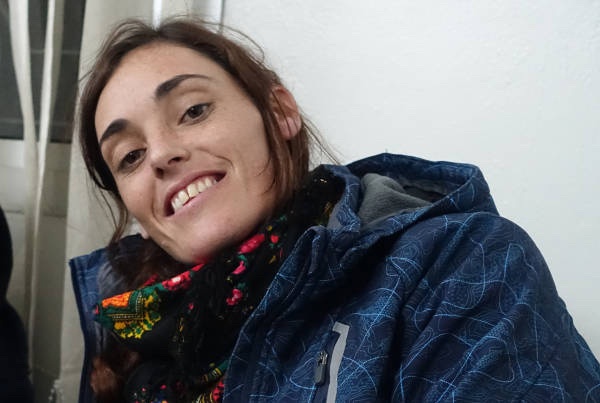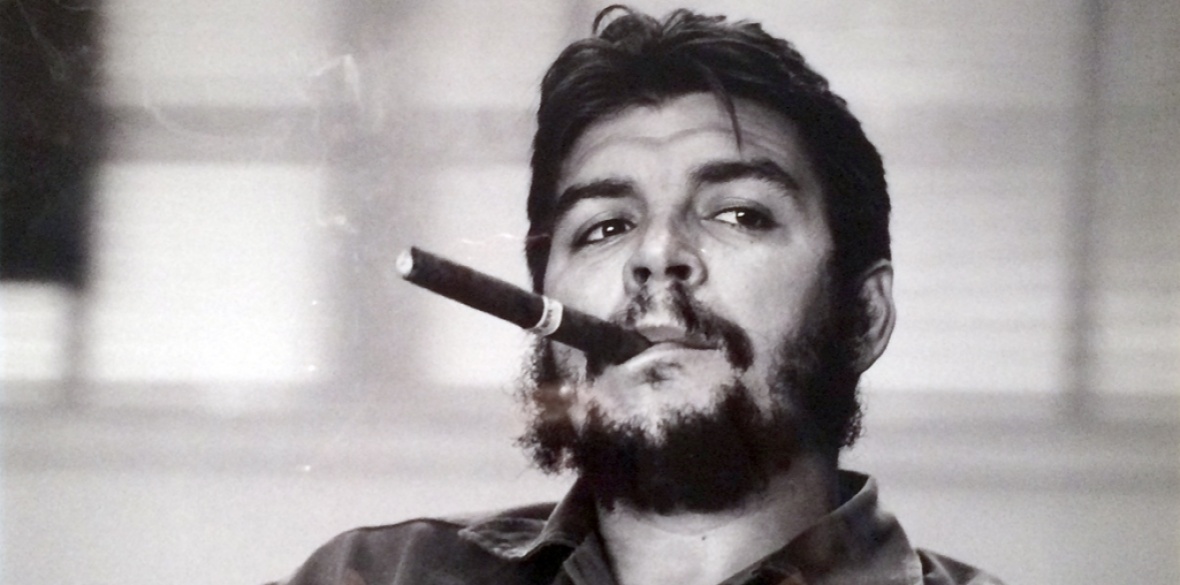This is the last article you can read this month
You can read more article this month
You can read more articles this month
Sorry your limit is up for this month
Reset on:
Please help support the Morning Star by subscribing here
IT SEEMS that almost daily there is news travelling from Kurdistan to all corners of the world that is sombre in nature. The revolutionary process that began in Rojava, northern Syria, in 2012, and the subsequent fight against fascism in its Islamic State and Turkish state manifestations has seen hundreds of internationalist volunteers pick up the gun in defence of revolution.
Countless comrades have perished on foreign soil in a country often very different from their own culturally — but that is nonetheless free territory, the essence of which is to provide the focal point for the world revolution today.

When I travelled across Kurdistan last year, I was consistently impressed at the range of personalities I met who had come from almost every continent on the planet.
There were the Europeans and volunteers from the US who I found myself perhaps most able to identify with in some respects, but also those who travelled from other parts of the so-called Middle East.
There were people from east Asia, and those from Africa, and also Latin America. This anti-fascist fight seemed to be bringing a diversity of people to the land of hope, to the laboratory of the democratic confederalist project.
There are comrades I met who have passed on. Their faces and voices still illuminate my dreams. Sometimes they are nightmares which serve as grim reminders of their transitions to martyrdom. On other occasions, their smiles are what I’m able to witness.
Increasingly, I have come to feel as if I have known martyrs of the cause who I didn’t actually have the pleasure and honour to physically meet.
One of these comrades who recently joined the caravan of the shehids is Alina Sanchez. I knew of Alina and her reputation within the ranks of the Kurdish Freedom Movement, although I never had the pleasure to exchange a handshake and “serkeftin!” with her.
By citing the example of Sanchez, who went by her Kurdish name of Legerin Ciya, I do not mean to undermine or to brush aside the unique example of each internationalist who has fought and died in the geography of historic Kurdistan. Each has a story worth sharing with the world.
I cite Sanchez for the simple fact that her example provides an important historical link between the revolutionary period that was the late 1960s and the present day.
It has been over 50 years since the Argentine revolutionary Ernesto “Che” Guevara died on Bolivian soil.
The internationalist doctor-turned-commander who risked his life in Cuba and the Congo in the cause of the world communist revolution was finally struck down in the jungle during an ill-fated attempt at creating a socialist society by overthrowing the US-backed government in power. The CIA had the final say in his demise.
In 1999, the CIA also orchestrated the kidnapping of Abdullah Ocalan, the leader of the Kurdistan Workers Party (PKK), in league with the Israeli intelligence agency Mossad.
At this time, Sanchez was only a teenager, still living in her native Argentina.
Like Che, Sanchez also aspired to be a doctor, as well as a fighter for the cause of the poor and downtrodden.
Another link to the most famous revolutionary of the 20th century was the fact that Sanchez studied medicine free of charge in Cuba.
Unlike Guevara, however, Sanchez didn’t find her internationalist mission on her own continent. The beginning of the 21st century saw the very slow revival of radical political projects across the world.
Cuba had survived the end of the so-called “cold war.” The Zapatista movement attempted to find a new way in Mexico.
The Bolivarian revolution in Venezuela spoke of a 21st-century socialism. A “pink tide” of radical, social democratic and anti-imperialist revolutions came after.
Yet it was unclear whether this wave would last, or if the paradigm offered could really upend capitalism.
Sanchez arrived in the mountains of Kurdistan in 2011, while still in the midst of medical school. Her enthusiasm for what she witnessed in the model of democratic confederalism made her a believer in the cause.
She witnessed the PKK practice gender equality in deed and not just word. Her motivation to serve the people in this landscape was cemented.
As the PKK executive committee said of this period of her political life: “Leader Apo’s line of women’s emancipatory democratic socialism had pulled her from Argentina, the homeland of Che Guevara, to Kurdistan’s mountains of freedom. She came thousands of miles to the Medya Defence Zones in 2011 to meet her socialist comrades with a great passion for freedom and democracy that she longed for. Coming together with the mountains of freedom was like awakening to a new life for her.
“Under intense attacks by the Iranian and the Turkish state, she remained in the Qandil Xinere and Gare regions. She witnessed first-hand the war aspect of the struggle for freedom and democracy in Kurdistan under the bombs.
“In her first month, she came face to face with almost becoming a martyr. The hardships of the Kurdistan revolution and her experiences made her ties to the PKK and the freedom movement stronger.”
However, the movement decided that she would be more needed, at least initially, in spreading the message and ideology of the PKK in Latin America.
In addition, this would allow her to finish her studies before returning to Kurdistan. As an international representative for the party and movement, she attended important events such as the peace negotiations between the Colombian government and the Revolutionary Armed Forces of Colombia (Farc-EP), a Marxist-Leninist guerilla army that the PKK has had a longstanding relationship with. Sanchez helped to cultivate and nurture this relationship further.
The most well known of the Farc-EP internationalists, Dutch guerilla fighter and negotiator Tanja Nijmeijer, spoke fondly of Sanchez, recalling how the two met in Havana during the peace negotiations.
Tanja said after learning of her passing: “I hope that her death will not be in vain; I hope that the world will break silence on what is going on in Afrin and in all northern Syria, where Turkey and allies are attacking the area; by promoting direct democracy, the rights of women and the community.”
With the attention of the world focused on the resistance in Kobane in 2014-15, Sanchez returned to her Kurdish comrades to take part in the building of the Rojava revolution, in particular the health system.
Due to the shortage of doctors and supplies, her knowledge and passion was invaluable. She donned the fatigues of the Women’s Protection Units (YPJ), going wherever she was needed and never failing to meet any task regardless of how difficult the circumstances were.
As her brother Juan Sanchez wrote in a letter after her death, “Alina was a woman with a great ability to radiate and awaken every kind of love, with great will and modesty, which enabled her to approach her idea of a better society with equal strength and importance at all levels: preparing a breakfast, taking the pressure of an old woman, having a meeting with the highest committee of a state, when covering a wound, when giving advice. Every conversation, every gesture, every action, however large or small, is an opportunity to improve the world, which if done in coherence with what one feels creates harmony to an entire community.”
This is indeed what distinguishes a revolutionary from merely a fighter. Although Sanchez wore military fatigues and carried a weapon, it was the sometimes mundane and often tedious tasks that she carried out with the most enthusiasm that made her a direct descendant of the lineage of Che.
If there has been a broken link between the 20th-century socialist experiments and those of the contemporary era, Sanchez has helped to mend it.
There is a lot that humanity can learn from the spirit of selflessness and sacrifice that beautiful souls like Sanchez have given not only Kurdistan, not only Syria, but the whole of humanity that is shouting out for an alternative to the self-decaying capitalist system that offers nothing but a bleak future for the planet.
Sanchez saw that whether in Argentina, Cuba or Kurdistan, the example of comradeship and work for a cause greater than that of the individual could be another spark to light the fire that will free the world from bondage.
Perhaps it is fitting that Sanchez didn’t die from the violence of the enemy, but rather from injuries sustained in a car accident. Not all martyrs fall on the front line; some perish behind the scenes working on the small tasks that ultimately make the difference between victory or failure.
As the PKK concluded in its message of condolence to the friends, family and comrades of Sanchez: “Comrade Legerin Ciya both facilitated the arrival of many internationalists to Kurdistan and Rojava, and left her mark on the Rojava revolution with her women’s liberation revolutionary democratic socialist line and character.
“Rojava revolutionaries and our people will never forget her. The struggle and martyrdom of Legerin will be Rojava’s democratic revolutionary line, and the guarantee for that line. We remember Legerin Ciya with gratitude and respect, and promise to hold her flag of struggle up high. We say her international spirit and socialist path will live on in the line of the PKK.”










